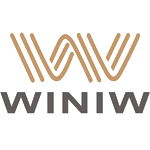**Synthetic Leather: The Future of Sustainable and High-Performance Materials**
**Introduction**
Synthetic leather, a versatile alternative to traditional animal leather, has revolutionized industries from fashion to automotive design. With advancements in eco-friendly production and customizable properties, it’s now a leading choice for brands prioritizing ethics, durability, and cost-efficiency. This article explores its innovations, applications, and why it dominates modern manufacturing.
---
### **Innovations Driving the Synthetic Leather Industry**
1. **Eco-Friendly Materials**
- Researchers are transforming **fruit and vegetable waste** into semi-synthetic leather, blending acrylic resin, glycerol, and polyvinyl acetate for flexibility and strength. Optimized formulas achieve tensile strength of **112.1 N** and withstand **20,000 abrasion cycles**, rivaling natural leather.
- Companies like **Huaxia Synthetic Leather** develop protein-based variants with "baby skin" softness, meeting strict environmental standards.
2. **Advanced Manufacturing Techniques**
- Laser processing enhances **water vapor permeability by 15%** in PU leather without compromising tear resistance.
- Recycled PET waste is repurposed into functional textiles, aligning with circular economy goals.
---
### **Types and Key Advantages**
1. **PU Leather**:
- Soft, breathable, and scratch-resistant, ideal for fashion (jackets, handbags) and furniture upholstery.
- Mimics genuine leather’s texture while offering better waterproofing and breathability.
2. **PVC Leather**:
- Rigid and water-resistant, widely used in automotive interiors and industrial equipment.
3. **Microfiber Suede**:
- Offers a luxurious finish for bags, shoes, and home decor, with options for waterproofing and custom textures.
**Why Choose Synthetic Over Natural Leather?**
- **Cost-Effective**: Mass production reduces costs by up to 60% compared to animal leather.
- **Customizable**: Embossing, metallic finishes, and laser engraving enable bespoke designs.
- **Durability**: Superior resistance to UV rays, moisture, and wear.
---
### **Applications Across Industries**
1. **Fashion**: PU leather jackets and accessories combine luxury with ethical appeal.
2. **Automotive**: PVC leather dominates car interiors for its structural integrity and easy maintenance.
3. **Home & Office**: Synthetic leather furniture and desk mats balance aesthetics with practicality.
4. **Luxury Packaging**: High-end jewelry boxes use eco-friendly MDF bases paired with synthetic leather for sleek finishes.
---
### **Market Trends and Sustainability**
- **China’s Dominance**: Manufacturers like **Quanzhou Winiw** lead global production, specializing in PU, PVC, and microfiber variants.
- **Certifications**: ISO 9001 and eco-friendly processes ensure compliance with international standards.
- **Consumer Shift**: 72% of millennials prefer sustainable materials, driving demand for cruelty-free alternatives.
---
**Conclusion**
Synthetic leather is no longer just an alternative—it’s a **superior, future-proof material** blending innovation, ethics, and performance. As technologies like bio-based resins and waste upcycling evolve, it will continue to redefine industries while addressing environmental challenges.

 EN
EN








































